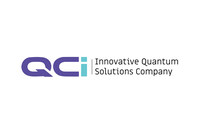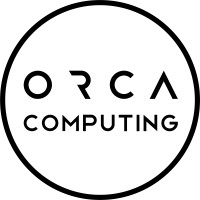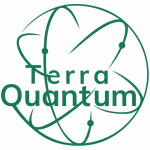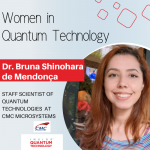Quantum News Briefs: November 15 2023: ORCA Computing Collaborates with PSNC; Quantum Computing Inc Shares Q3 Statements, Atomic Clocks and Imprecise Timekeeping, and MORE!
Quantum News Briefs: November 15, 2023:
ORCA Computing to provide Poznań Supercomputing and Networking Center (PSNC) with first Quantum Computers
The Poznań Supercomputing and Networking Center (PSNC) in Poland is set to enhance its quantum computing capabilities by collaborating with British firm ORCA Computing. This partnership will see the installation of two ORCA Computing PT-1 quantum photonics systems at PSNC, a significant step in integrating quantum and classical computing. Funded under the Polish program and procured through the EUROHPC-PL project, these systems will be operational by late 2023. They are expected to advance research in various scientific fields, including biology, chemistry, and machine learning. The PT-1 systems, notable for their photon-based quantum computing technology and compatibility with classical high-performance computing solutions, mark a milestone in PSNC’s commitment to pioneering the field of quantum-classical computing integration.
Richard Murray, CEO and Co-founder of ORCA Computing commented: “We’re delighted to be working with the PSNC. As a leading high-performance computing centre, its expertise and infrastructure will significantly contribute to the field of quantum computing. Our PT-1 systems are ideally suited to support the centre’s mission and we look forward to working closely together on the development of applications using this revolutionary new technology.”
Quantum Computing Inc. Reports Third Quarter and Nine Months 2023 Financial Results

Quantum Computing Inc. (QCi), a leader in quantum optics and nanophotonics technology, reported significant financial and operational progress in its recent press release. For the third quarter of 2023, QCi announced revenues of approximately $50,000, a notable increase from the previous year. This growth is attributed to the expansion in manufacturing capacity and the initiating of a quantum chip facility for products like lithium niobate chips. The company has secured various testing contracts with government agencies and is in the advanced stages of testing with several large organizations. Despite a net loss of $8.3 million for the third quarter, the company remains optimistic about its future, especially with the commencement of hardware product delivery. QCi’s CEO, Robert Liscouski, highlighted the company’s reduced liabilities by over 78% through September 2023 and consistent operating cash expenses. With a focus on multi-product releases and a robust business plan, QCi is positioning itself for a strong performance in 2024.
UIUC professors receive AFOSR grant to study detrimental defects in superconducting qubit junctions
Four professors from the University of Illinois Urbana-Champaign—Angela Kou and Wolfgang Pfaff from Physics, and Pinshane Huang and Andre Schleife from Materials Science and Engineering—have secured a nearly $1 million grant from the Air Force Office of Scientific Research. This two-year project, “Identifying the origin and lossy defects in Josephson junctions,” focuses on enhancing the understanding and control of Josephson junctions, critical components in superconducting qubits for quantum computing. In the current phase of quantum computing development, known as the noisy intermediate-scale quantum (NISQ) era, the challenge lies in effectively increasing the number of qubits and junctions per chip. The research team aims to delve into the materials science behind these junctions, primarily composed of aluminum/aluminum oxide/aluminum, to address the unpredictability caused by their microstructural disorder. Through techniques like transmission electron microscopy and low-temperature device characterization, the team plans to analyze these junctions’ structural and elemental composition and assess defect densities. This comprehensive study is expected to yield significant data, potentially leading to a more reliable method for reducing detrimental defects in quantum computing hardware. The collaboration between the university’s materials science and physics departments plays a key role in the project’s feasibility and success.
In Other News: IEEE Spectrum article: “Imperfect Clocks Limit Quantum Computers Timing issues could produce critical problems as quantum computers get bigger”
A recent IEEE Spectrum article highlights how researchers, including Jake Xuereb from the Vienna University of Technology, have identified a fundamental limitation due to the inherent imperfection of clocks. Quantum computers, developed by tech giants like IBM, Google, and Amazon, depend on precise timing to control their qubits (quantum bits). However, the study highlights that no clock can simultaneously achieve perfect precision and resolution, a limitation dictated by physics. This imperfection becomes increasingly problematic as the number of qubits in a quantum computer grows. The research delves into how these timing errors could affect quantum algorithms, which consist of a series of quantum gates. While current quantum computers with fewer qubits are less affected, larger-scale quantum computers face a significant challenge. The researchers also note an interesting interplay between the need for fast quantum gates and qubits’ limited coherence time (the duration quantum effects last). Different qubit platforms, like superconducting circuits and trapped ions, might respond differently to these timing constraints. The study, which offers a new avenue for future research, was detailed in the journal Physical Review Letters, indicating a possible fundamental limit to the accuracy of quantum computations due to imperfect timekeeping.
In Other News, The Debrief article: “EXCLUSIVE: THE ‘IMPOSSIBLE’ QUANTUM DRIVE THAT DEFIES KNOWN LAWS OF PHYSICS WAS JUST LAUNCHED INTO SPACE”
A new article from The Debrief highlights an electric propulsion system, the Quantum Drive, developed by IVO Ltd, which was recently launched into space on SpaceX’s Transporter 9 mission, sparking controversy in the scientific community. The Quantum Drive, which challenges Newton’s Laws of Motion, was sent into Low Earth Orbit (LEO) on November 11th. Richard Mansell, founder of IVO Ltd, expressed optimism about establishing communication with the satellite carrying the drives, named “Barry-1”. This mission represents the first real-world test of the Quantum Drive, following extensive laboratory experiments and prototyping based on the Quantized Inertia (QI) theory by Professor Mike McCulloch. McCulloch’s theory, which offers a novel explanation for inertia, has faced criticism for seemingly defying established laws of motion. The Quantum Drive has undergone rigorous testing, including a 1,000-hour stress test, and its success in space could potentially rewrite physics textbooks or reaffirm Newtonian principles. Mansell emphasized IVO’s commitment to pushing scientific boundaries and the importance of practical testing over theoretical conjecture in advancing science and technology.






















